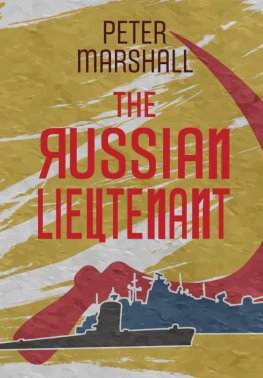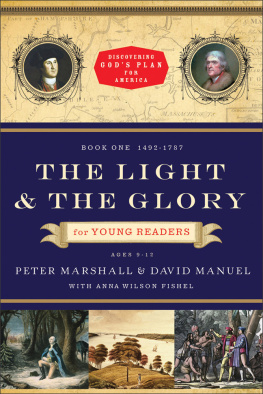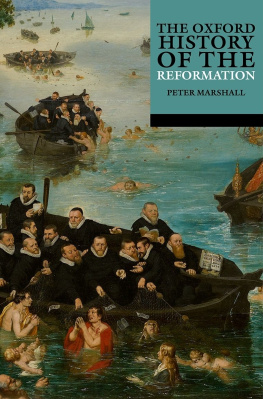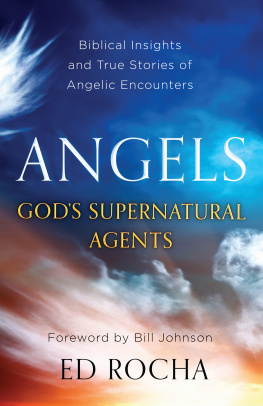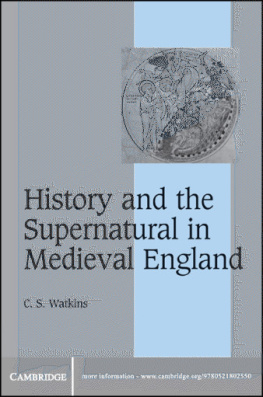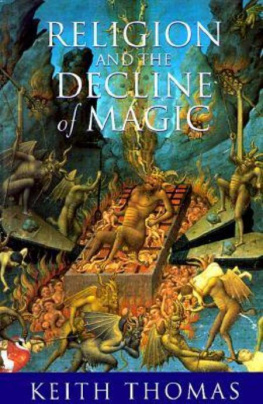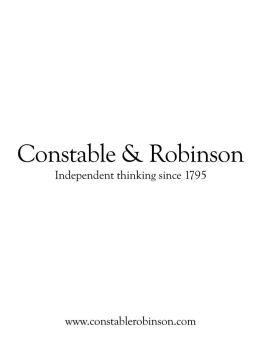Invisible Worlds offers convincing proof of the central role played by conceptions of the supernatural and the afterlife in the religious upheavals of the early modern period. It also highlights the untidy complexity of the shift from one set of beliefs to another, thus giving us a nuanced understanding of the passage to modernity, the rise of scepticism and the so-called disenchantment of the world brought about by the Protestant Reformation. Peter Marshalls work is indispensable reading for anyone who desires to understand the intellectual and spiritual shaping of early modern England and of the Western imagination as well.
Carlos Eire, Professor of History and Religious Studies, Yale University
With characteristic elegance and subtlety, Peter Marshall investigates the contested realms of heaven, purgatory and hell in early modern England, and probes persisting assumptions about angels, ghosts and fairies. Painting a rich and intricate picture of the transactions between traditional religion and Reformed theology, his book shows how pastoral imperative sometimes bowed to popular belief, and how, simultaneously, Protestantism sowed the seeds of scepticism about the supernatural. Full of intriguing insights, Invisible Worlds will be warmly welcomed by scholars, students and general readers alike.
Alexandra Walsham, Professor of Modern History Univ ersity of Cambridge
Peter Marshall is Professor of History at the University of Warwick and co-editor of The English Historical Review . He has published widely on many aspects of the religious culture of early modern Europe, particularly in the British Isles, and his books include Mother Leakey and the Bishop: A Ghost Story (2007), The Reformation: A Very Short Introduction (2009) and Heretics and Believers: A History of the English Reformation (2017).
INVISIBLE WORLDS
Death, religion and the supernatural
in England, 15001700
PETER MARSHALL
In memory of
John Bossy (19332015)
and Cliff Davies (19362016)
Contents
Introduction
The chapters in this volume updated versions of essays first published between 2000 and 2015 seek to make a significant contribution towards understanding the dramatic impact of the Protestant Reformation on the society and culture of sixteenth- and seventeenth-century England, and (particularly in ) to place that impact in a larger international context. They do so by adopting a distinctive angle of vision. The focus is not so much upon concrete matters of church governance, ecclesiastical politics and the day-to-day organization of worship as upon the wanderings and fixations of the religious and cultural imagination. In particular, I seek in these essays to chart the shifting borders and boundaries between the known and the unknown, the natural and the supernatural; between worlds of daily travail and the invisible worlds that contemporaries believed were there to be discovered after death, or that lay hidden within the folds and crevices of ordinary lived experience.
The book is in two parts. The first five chapters consider the intellectual and cultural consequences of the Reformations assault on established doctrines about the afterlife, and the experience of human souls following death. The second part looks at deeply held beliefs around angels, ghosts and fairies, and the ways in which these were reappropriated and reimagined once they were cut loose from their traditional theological moorings.
The effect of the Reformation upon the imagination is not, I contend, a marginal or trivial subject; rather, it points us towards crucial aspects of human identity and experience. Nor, in making reference to a symbolic realm of the imagination something which French cultural historians have usefully christened the imaginaire do I intend to pass negative or condescending judgement on the veracity of the beliefs of the historical actors written about in these pages. In the twenty-first century we are not really in any better position than our ancestors to know what, if anything, lies in wait for us beyond the grave or the incinerator, and our speculations on that subject are inevitably as influenced by the cultural presumptions of our own time as those of sixteenth-century people were by those of theirs.
Many, I expect most, readers of this book will share my own instinctive assumption that creatures such as ghosts and fairies are not real, and that people who reported having dealings with them are not in fact supplying us with reliable evidence for the objective existence of these supernatural entities in the past. But, in terms of historical understanding, such an observation does not take us very far. There is a difference between the duty to explain and the temptation to explain away: the latter can too easily lead to a reductionist approach to the more challenging and uncomfortable aspects of pre-modern belief or action, one which seeks to translate them into terms that make sense to us. We should be suspicious of modern historians offering definitive explanations of what was really going on, when those explanations are couched in terms which would have made no sense at all to the people actually involved.
The integrity, the autonomy, the strangeness of the past is always something to be respected, and, as far as possible, to be imaginatively recovered and reconstructed. The invisible worlds of sixteenth- and seventeenth-century England are places of the imagination that we should seek to explore sensitively and seriously, not to smile at knowingly as bizarre curiosities or monuments to obsolete credulity. E. P. Thompsons famous stricture about the imperative to rescue seemingly outlandish people and ideas from the enormous condescension of posterity can simply never be cited too often.
At the same time, it is a responsibility of historians arguably their key responsibility to explain patterns of change over time, and to help us understand how the societies of the past evolved into the societies of today. The Reformation was, without doubt, an engine of momentous change. It simultaneously transformed and divided English society, breaking institutional and doctrinal ties that had for centuries bound England to a wider European religious culture, while forging important new ones with networks of Protestants overseas.
Scholarly interpretations of the English Reformation have long been contested and controversial. They are themselves to a considerable extent cultural artefacts of the world the Reformation helped to create, rather than detached assessments formed in some sealed oxygen chamber of the intellect. The dominant scholarly narrative, well into my own lifetime, was one whose broad outlines Protestant reformers themselves might have recognized. The Reformation represented an inevitable challenge to a corrupt and oppressive ecclesiastical institution, saddled with a deeply flawed theology and some highly suspect rituals and practices. The initial trigger, in England, may have been the marital difficulties of Henry VIII, and changes were certainly enacted under the mantle of an all-embracing Act of State. But anticlerical feelings on the part of the people, and a yearning for the Bible and more authentic forms of Christian expression, ensured that reforms were broadly welcomed and effectively implemented. The Reformation was itself a relatively short period of transformation and transition, drawing for all important purposes to a close with the Elizabethan Settlement of 1559; it was more an event than a long-drawn-out process.


